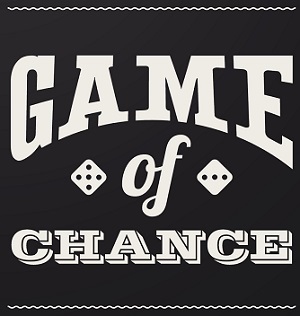The exact symbolism and fairness of the games may have varied, but high stakes were common. European colonists noted games of chance with large amounts of trade goods, food, housing, or even people, as the pot. Mayans used precious stones or feathers as wagers. Games were raucous affairs. Nearly every casino game that you encounter qualifies as a game of chance. This includes slot games, roulette, video poker, and tons of table games. In fact, the only games in a casino that are NOT considered games of chance would be poker and blackjack. Games of chance have been around since ancient times, proving that humans. Dec 10, 2018 Even the ancient Greeks played their share of board games; this illustration on a Greek amphora from the sixth century B.C. (now exhibited at the Vatican Museums in Rome) shows the Greek heroes.
- Early probability
- The rise of statistics
- Statistical theories in the sciences
Play real casino slots for free. Our editors will review what you've submitted and determine whether to revise the article.
Join Britannica's Publishing Partner Program and our community of experts to gain a global audience for your work!
Probability and statistics, the branches of mathematics concerned with the laws governing random events, including the collection, analysis, interpretation, and display of numerical data. Probability has its origin in the study of gambling and insurance in the 17th century, and it is now an indispensable tool of both social and natural sciences. Statistics may be said to have its origin in census counts taken thousands of years ago; as a distinct scientific discipline, however, it was developed in the early 19th century as the study of populations, economies, and moral actions and later in that century as the mathematical tool for analyzing such numbers. For technical information on these subjects, seeprobability theory and statistics. Casino apps real money. Slot luv casino no deposit codes.
Early probability
Games of chance
Bull run casino. The modern mathematics of chance is usually dated to a correspondence between the French mathematicians Pierre de Fermat and Blaise Pascal in 1654. Their inspiration came from a problem about games of chance, proposed by a remarkably philosophical gambler, the chevalier de Méré. De Méré inquired about the proper division of the stakes when a game of chance is interrupted. Suppose two players, A and B, are playing a three-point game, each having wagered 32 pistoles, and are interrupted after A has two points and B has one. How much should each receive?
Fermat and Pascal proposed somewhat different solutions, though they agreed about the numerical answer. Each undertook to define a set of equal or symmetrical cases, then to answer the problem by comparing the number for A with that for B. Fermat, however, gave his answer in terms of the chances, or probabilities. He reasoned that two more games would suffice in any case to determine a victory. Best 3 card poker app. There are four possible outcomes, each equally likely in a fair game of chance. A might win twice, AA; or first A then B might win; or B then A; or BB. Of these four sequences, only the last would result in a victory for B. Thus, the odds for A are 3:1, implying a distribution of 48 pistoles for A and 16 pistoles for B.
Pascal thought Fermat's solution unwieldy, and he proposed to solve the problem not in terms of chances but in terms of the quantity now called 'expectation.' Suppose Bock of ra kostenlos spielen. B had already won the next round. Chumba casino coupon codes. In that case, the positions of A and B would be equal, each having won two games, and each would be entitled to 32 pistoles. A should receive his portion in any case. B's 32, by contrast, depend on the assumption that he had won the first round. This first round can now be treated as a fair game for this stake of 32 pistoles, so that each player has an expectation of 16. Hence A's lot is 32 + 16, or 48, and B's is just 16.
Ancient Games Of Chance
Games of chance such as this one provided model problems for the theory of chances during its early period, and indeed they remain staples of the textbooks. A posthumous work of 1665 by Pascal on the 'arithmetic triangle' now linked to his name (seebinomial theorem) showed how to calculate numbers of combinations and how to group them to solve elementary gambling problems. Fermat and Pascal were not the first to give mathematical solutions to problems such as these. More than a century earlier, the Italian mathematician, physician, and gambler Girolamo Cardano calculated odds for games of luck by counting up equally probable cases. His little book, however, was not published until 1663, by which time the elements of the theory of chances were already well known to mathematicians in Europe. It will never be known what would have happened had Cardano published in the 1520s. It cannot be assumed that probability theory would have taken off in the 16th century. When it began to flourish, it did so in the context of the 'new science' of the 17th-century scientific revolution, when the use of calculation to solve tricky problems had gained a new credibility. Cardano, moreover, had no great faith in his own calculations of gambling odds, since he believed also in luck, particularly in his own. In the Renaissance world of monstrosities, marvels, and similitudes, chance—allied to fate—was not readily naturalized, and sober calculation had its limits.
PROBABILITY IN ANCIENT INDIA
Medieval Games Of Chance
- key people
- related topics

